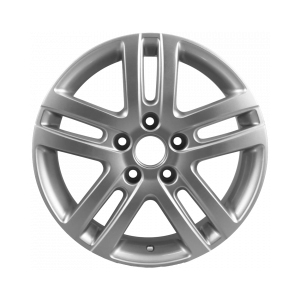8mm shaft seal
Understanding 8mm Shaft Seals Importance, Types, and Applications
Shaft seals are critical components in various mechanical systems, designed to prevent the leakage of fluids and contaminants from entering or leaving a shaft assembly. Among the various sizes available, the 8mm shaft seal is a popular choice due to its versatility in multiple applications, ranging from automotive to industrial machinery. Understanding the importance, types, and applications of 8mm shaft seals is essential for anyone involved in equipment maintenance or design.
Importance of Shaft Seals
Shaft seals serve several vital functions. Primarily, they maintain the integrity of a mechanical system by containing lubricants and preventing leakage. This efficiency is especially crucial in systems where lubricants are necessary for reducing wear and tear on moving components. Additionally, seals protect sensitive internal parts from dirt, dust, and other contaminants that could cause malfunction or damage.
The consequences of not using an appropriate shaft seal can be severe. Fluid leaks not only compromise the efficiency of a system, leading to increased friction and wear but can also pose safety hazards in certain applications, particularly in hydraulic and pneumatic systems. Moreover, the introduction of contaminants can lead to equipment failure, increased maintenance costs, and unexpected downtimes.
Types of 8mm Shaft Seals
8mm shaft seals come in various types, each designed to meet specific requirements. Here are some common types
1. Rubber Lip Seals These are the most commonly used seals, featuring a flexible lip that adapts to the shaft's surface. They are effective in containing lubricants while also accommodating shaft movement.
2. Mechanical Seals These seals are designed to handle high pressures and are commonly used in pumps and mixers. They consist of two flat surfaces that create a seal when pressed against each other.
3. Composite Seals Made from a combination of materials, composite seals offer enhanced durability and resistance to a wide range of chemicals, making them ideal for harsh environments.
8mm shaft seal

4. O-Ring Seals Though they can be used in conjunction with other sealing methods, O-ring seals are effective by themselves in applications where space is limited.
5. Spring-Loaded Seals These seals incorporate a spring mechanism to maintain constant pressure against the shaft, ensuring a secure seal under varying conditions.
Applications of 8mm Shaft Seals
The adaptability of 8mm shaft seals allows them to be used in various sectors
- Automotive Industry Many vehicles utilize 8mm seals in engines, gearboxes, and differential systems to prevent oil leaks and keep contaminants out.
- Industrial Equipment From conveyor systems to manufacturing machinery, 8mm shaft seals play a critical role in ensuring equipment operates smoothly and efficiently.
- Aerospace Applications In aviation, reliability is paramount. 8mm shaft seals are employed in hydraulic systems and other critical components where leaks can lead to failure.
- Electronics In devices where motors are used, 8mm seals help protect sensitive electronic parts from moisture and dust.
Conclusion
In conclusion, 8mm shaft seals are fundamental components across a variety of mechanical systems. Their primary role in preventing leaks and contamination is vital for maintaining the efficiency, safety, and longevity of machinery. Understanding the different types of seals and their specific applications can help engineers and technicians make informed decisions, ultimately leading to improved performance and reliability in mechanical systems. As technology continues to advance, the design and materials used in shaft seals will evolve, ensuring their roles remain critical in modern engineering and manufacturing processes.
-
Understanding Automotive Oil Seals: Essential Components for Engine and Shaft Protection
News Jul.30,2025
-
The Importance of Heavy Duty Seals in Industrial and Residential Applications
News Jul.30,2025
-
Exploring Industrial Oil Seals: From Felt Oil Seals to TTO and CFW Solutions
News Jul.30,2025
-
Essential Guide to Oil Seals: From Radial to Metal-Cased Seals for Industrial Reliability
News Jul.30,2025
-
Choosing the Right Oil Seals and Gaskets for Industrial and Automotive Applications
News Jul.30,2025
-
Cassette Seals: Durable Sealing Solutions for Harsh Environments
News Jul.30,2025
-
Understanding the Front Main Engine Seal: Purpose, Maintenance, and Installation
News Jul.29,2025
Products categories















